New prime minister: What do all the words mean?
- Published
- comments
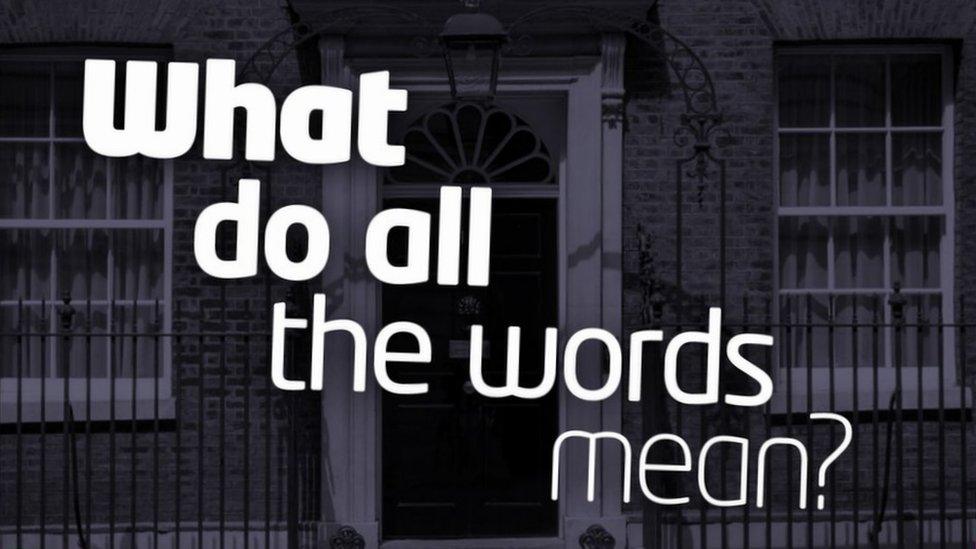
Liz Truss has announced she is stepping down as the UK's prime minister after just 45 days in office, the shortest time any PM has been in charge in UK history.
She also revealed that her replacement would be elected by the Conservative Party over the next week.
While you're keeping up to date with what's going on, you might be coming across a lot of new words and phrases.
So, we've taken some of the key political terms you might be hearing or reading, and explained what they mean.
Let us know in the comments below if there are any other words or phrases you'd like to have explained.
10 Downing Street
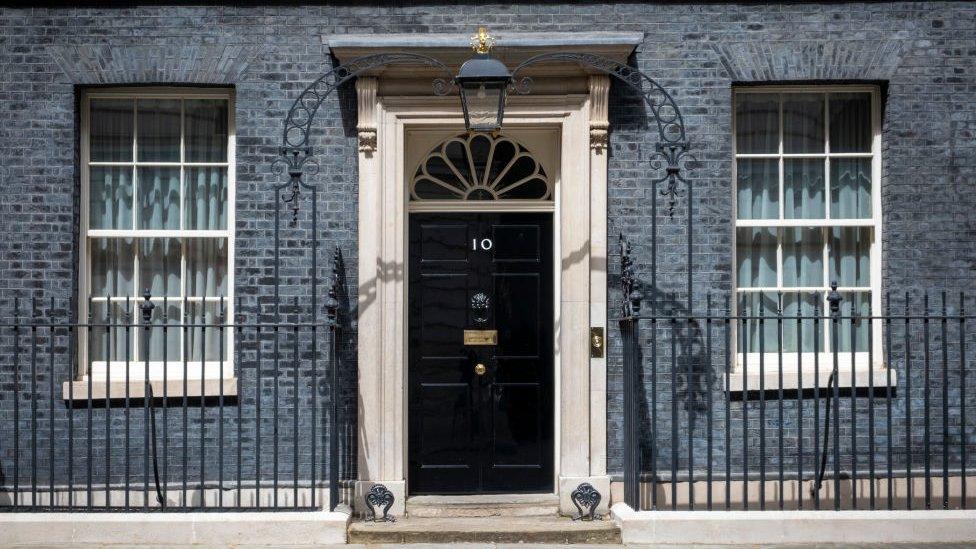
This is where the prime minister lives and works.
Behind the famous black door are offices and accommodation where the PM can stay and where her or his staff can work.
Cabinet
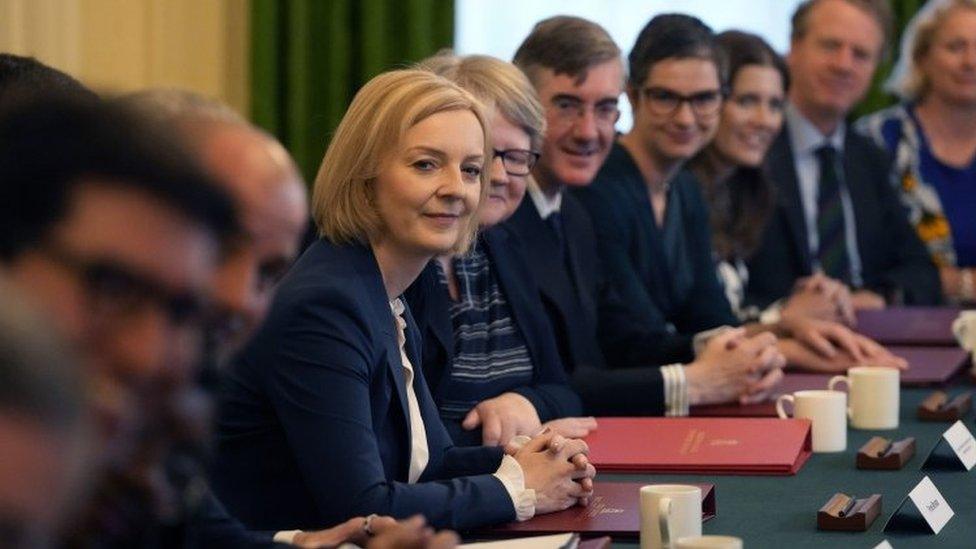
Members of the cabinet - the prime minister's top team - usually meet once a week
The Cabinet is the prime minster's top team.
It is usually made up of experienced politicians who take responsibility for delivering on the PM's promises.
They are in charge of certain areas of UK life, such as the nation's money, transport or education.
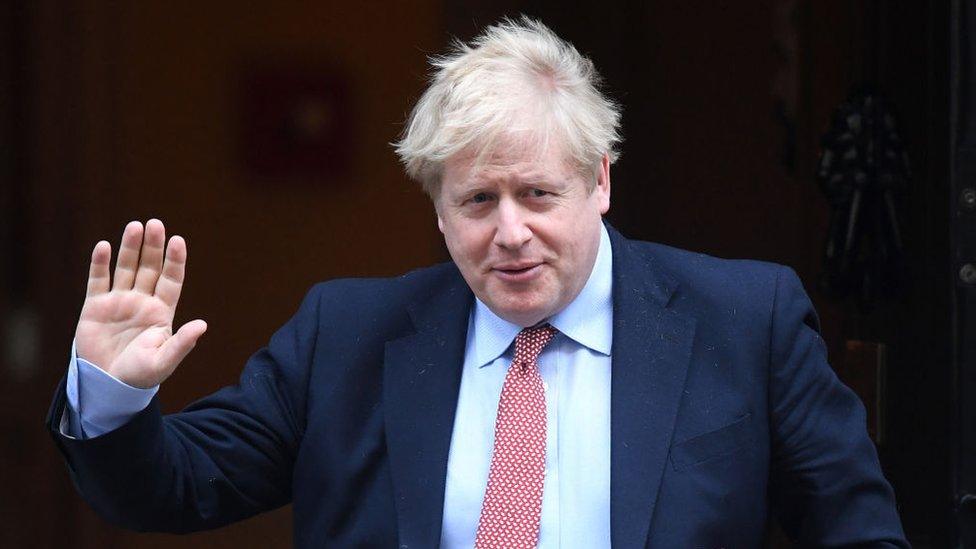
Conservative Party
One of the two main parties in Parliament, it is the party of Liz Truss and Boris Johnson.
Since 2010, the all the UK's prime ministers have come from the Conservative Party.
General Election
A general election gives adults in the UK the chance to have a say on who runs the country.
In the UK, when you turn 18, you can vote in a general election to choose who you want to be your Member of Parliament (MP) - the person who goes to Parliament to represent your local area.
Usually the party which has the most MPs forms the government.
The last general election was in 2019 and was won by the Conservative Party.
MP (Member of Parliament)
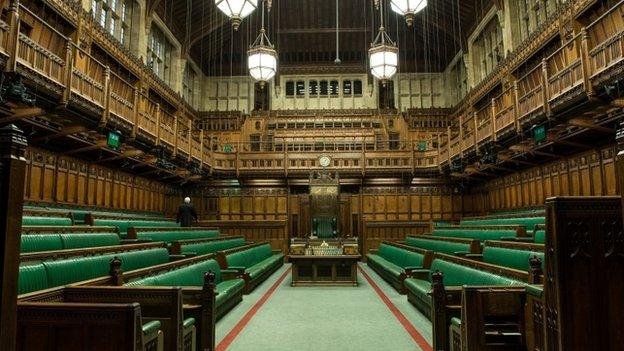
Inside the House of Commons where MPs sit on green benches
An MP - or Member of Parliament - is a person who represents a particular area of the country in parliament.
The UK is divided into 650 of these areas, called constituencies - and there is an MP for each one. So that makes 650 MPs in Parliament in total.
Most MPs belong to groups called political parties - such as the Conservative, Labour or Liberal Democrat Party.
Mandate
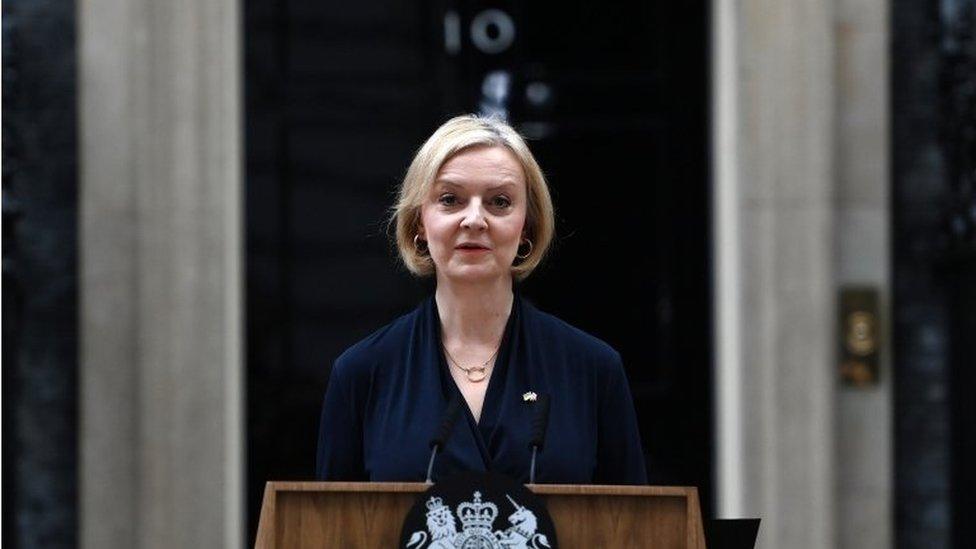
Liz Truss announced she is stepping down as prime minister in a statement outside Downing Street on Thursday
A mandate is a word for evidence that a PM or party can point to to show that they have the support of the public.
For example, at the 2019 general election the Conservative Party won the most seats in Parliament.
The party's leader at the time, Boris Johnson, claimed that because so many people had voted for his plans for the country, that was evidence that he had their support to see those plans through.
As another example, some opposition parties claim that because Liz Truss never faced a general election, and never won the public's vote, she had no mandate for her very different plans.
- Published20 October 2022
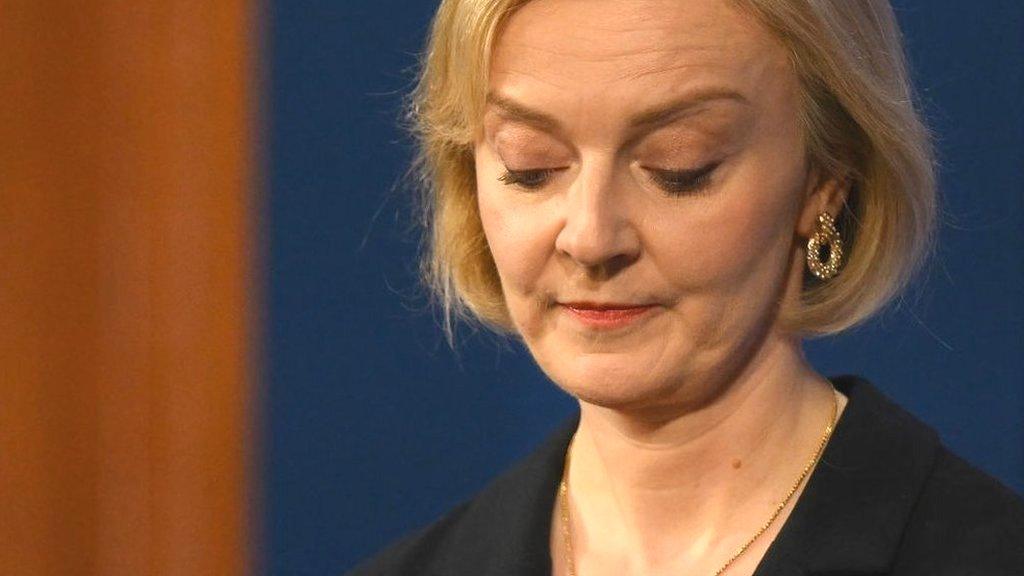
- Published20 October 2022
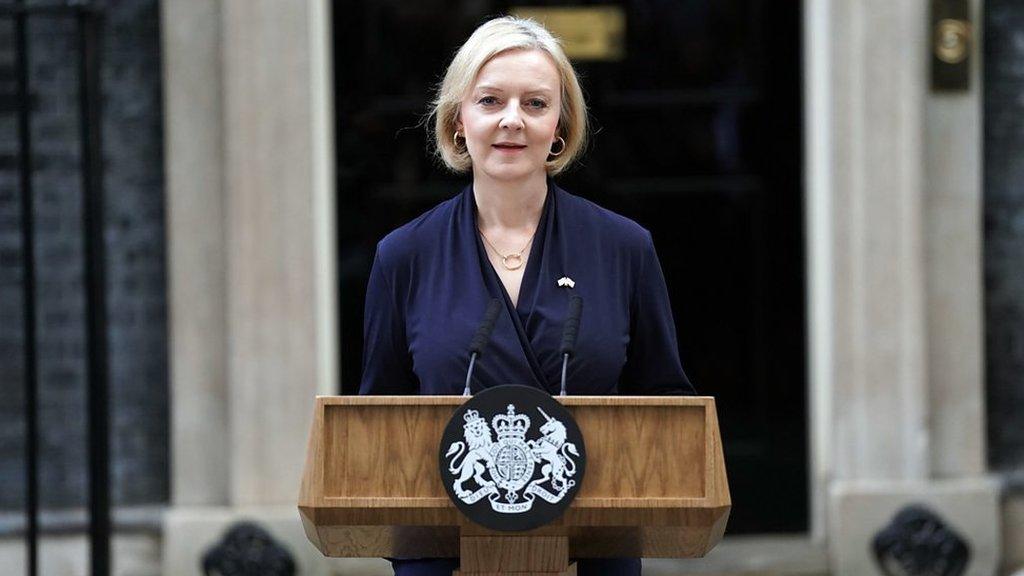
- Published20 October 2022
